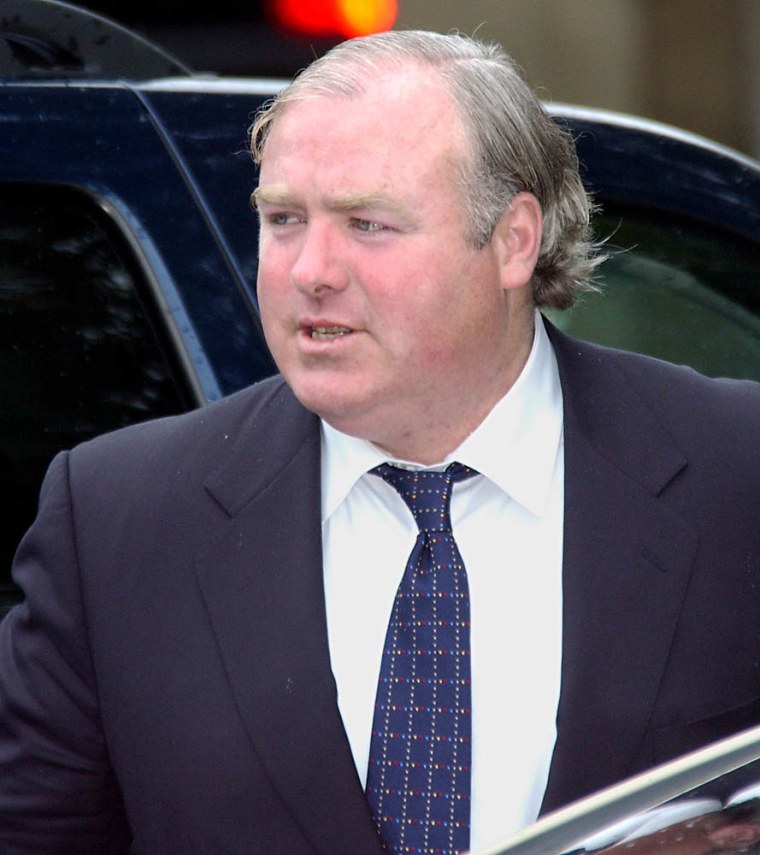NEW HAVEN, Conn. — Kennedy cousin Michael Skakel's lawyers have filed a new appeal of his murder conviction, claiming that police and prosecutors failed to provide them with evidence that pointed to another suspect and discredited a key state witness.
The motion filed Thursday in U.S. District Court in New Haven seeks a hearing and the setting of bail. A judge has not ruled on the requests.
A state jury convicted Skakel in 2002 of killing 15-year-old Martha Moxley in their Greenwich neighborhood in 1975. He's serving 20 years to life in prison.
His new appeal alleges his lawyers were never given two crucial pieces of evidence — a report received by Greenwich police that implicates another suspect and statements by a lawyer who said a key witness for the state had a history of lying.
Comment declined
Fairfield County State's Attorney Jonathan Benedict, who prosecuted Skakel, declined to comment on the new court filing Friday. He said he hadn't seen the motion and will respond to the claims later on in court.
The state Supreme Court upheld Skakel's conviction in January 2006, rejecting defense arguments including claims that Skakel was charged long after the statute of limitations in effect in 1975 expired, and that his case should have been tried in Juvenile Court. Skakel, a nephew of Ethel Kennedy, was also 15 at the time of Moxley's killing.
The U.S. Supreme Court declined to review the case in November 2006, but Skakel has several other appeal claims pending in state and federal courts.
Two other men have been implicated in Moxley's killing, but a state judge rejected that allegation last year when he turned down Skakel's request for a new trial.
Letter in question
Skakel's Hartford-based lawyers, Hubert Santos and Hope Seeley, say in the new motion that a Madison police officer forwarded to Greenwich police a letter from a mentally ill man's sister, who said her brother accused another man of killing Moxley.
The new appeal says the sister's letter was in a report dated July 19, 1993, only weeks before the mentally ill man, Andrew Wilson, committed a murder. The lawyers say Wilson and the man he accused are both from Greenwich.
Wilson is currently serving a 30-year prison sentence for killing a Greenwich advertising executive, who was the father of the man he accused of killing Moxley.
Skakel's lawyers say in their motion that they learned about the sister's letter only two months ago.
New motion
The motion also says that a lawyer who once represented key state witness Gregory Coleman told a state prosecutor in 1998 that Coleman was an "incorrigible drug addict who would routinely lie in order to get money for drugs."
The lawyer, John Regan, whose practice is in Rochester, N.Y., contacted Skakel's lawyers in December to tell him about his conversation with the prosecutor, the motion says. The prosecutor was not named.
After Skakel's conviction, the motion says, Regan "was disturbed to see that Coleman's role as a witness had been prominent. Attorney Regan had assumed there must have been a lot of other solid evidence." The motion says Regan learned there had been little other evidence from an Atlantic Monthly article written by Robert F. Kennedy Jr., Skakel's cousin.
Coleman, who attended a reform school in Maine with Skakel in the late 1970s, said at a hearing before Skakel's trial that Skakel confessed to killing Moxley and said he would get away with murder because "I'm a Kennedy." Coleman admitted to being high on heroin during his grand jury appearance and he died in 2001 after using drugs, but his testimony was read into the record during Skakel's trial.
